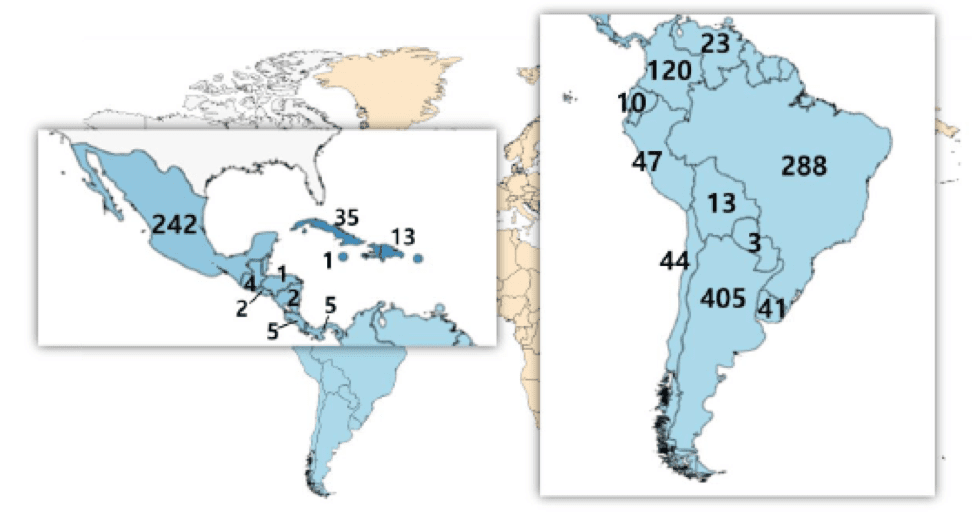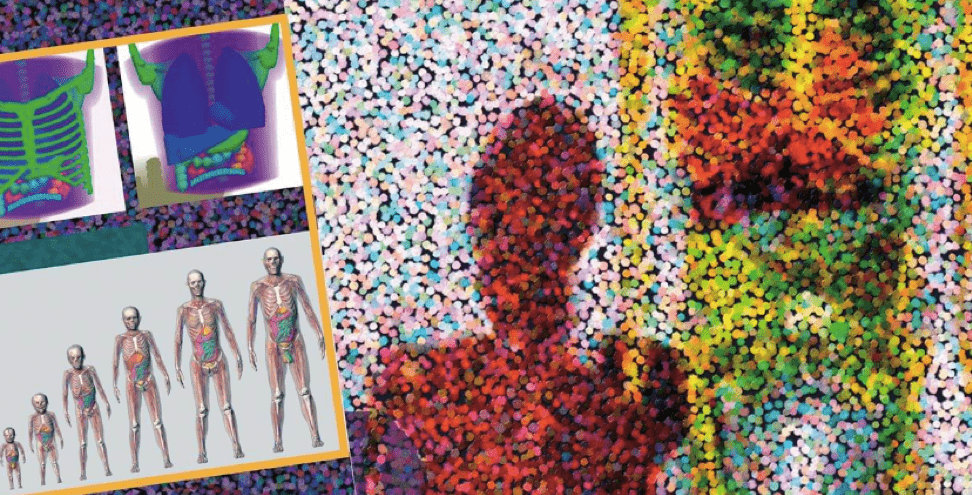Russian companies’ opportunities in the Latin American market
More than six months have passed since the spread of COVID-19 was recognized as a pandemic. All eyes are on the pharmaceutical vaccine race, governments are striving to ensure healthcare systems’ reliability and online-service providers create a comfortable isolated pace of the consumers.
COVID-19 stole the show of all world events, and forced humankind rethink the value of health and reliability of medical institutions. Reacting to the spread of the virus, pharmaceutical companies and healthcare structures still do long-term planning and assess systematic issues. Fighting coronavirus is starting to be regarded more than an operational routine of medical services.
When health-improvement and resilience of the medical system are heading the agenda, demand for early diagnosis, modern treatment and staff development goes up. Key characteristics of high-tech industries: efficiency, accuracy and predictability are no less relevant in the healthcare sector, where top efficiency and promptness in overloaded conditions are required.
Conditions (as well as unforeseen stress-tests) for the development of knowledge-intensive industries were lined up in the most favourable way in 2020, highly contributing to improvements. Due to its effectiveness, nuclear medicine has a great chance to move to a new stage in the introduction and development of technologies. This confirms the engagement and proactive position of the International Atomic Energy Agency (IAEA): ZODIAC project on integrated action against zoonoses was launched this summer. To simplify it a little: zoonoses issues are those related to animal diseases that are transmitted to humans. ZODIAC is to become the backbone of a global data exchange network for national laboratories serving to monitoring, surveillance, early detection and control of animal and zoonotic diseases such as COVID-19, Ebola, bird flu and Zika virus.
“The coronavirus has been a painful reminder of how deadly and disruptive a pandemic can be. Through the ZODIAC project, the IAEA will help countries systematically prepare and quickly detect new viruses in order to prevent pandemics.”
Rafael Mariano Grossi, IAEA Director General

Source: https://www.iaea.org/
ZODIAC is packed with modern IT-tools for modelling and forecasting, data exchange, coordination of actions of scientific and medical centres. The national laboratories involved in the project will use nuclear methods for the rapid detection of pathogenic microorganisms. The dissemination of the program, distance trainings and new partnerships provide Latin American countries with access to modern peaceful nuclear technologies and set a gradual path to sectorial legal frameworks.
The range of products of nuclear medicine companies is broad and covers stages from detection and diagnosing to therapeutic treatment of oncological, cardiovascular, endocrine diseases. It includes radiopharmaceuticals, radiotherapy equipment (tomographs, radiation therapy complexes) and engineering solutions for new nuclear medicine centres. GE Healthcare, Bayer Diagnostics, Toshiba, Siemens, Philips are the main industrial players with Russian corporation Rosatom holding 5% of the world market. Following its strategy, the latter plans to expend its share to at least 12% by 2030, widely applying Russian components and technologies in integrated offers.
With more than 200 different nuclear medicine centres in Latin America, the region has firm pillars to give a wider application of peaceful nuclear technologies. However, regional expertise, concentrated mainly in Argentina, Brazil, Mexico, Chile and Uruguay, is clearly not enough to achieve intensive growth. Even though there are specific success stories (as the one of Argentina being a reliable global supplier of radioisotopes), Latin American countries require assistance from international nuclear bodies and experienced foreign partners.

Number of qualified nuclear medicine professionals in Latin America. Source: IAEA Data Base.
Professional development of scientific and medical personnel, creation of national knowledge centres, expansion of radiotherapy practices to combat cancer and cardiac diseases as well as introduction of uniform digital standards are among the regional priorities stated by The World Federation of Nuclear Medicine and Biology (WFNMB) in its report. Residents of all countries in the region should become beneficiaries, but the absence of the nuclear industry as such (with rare exceptions) obstructs the path to intensive growth and improvement of the healthcare system in Latin America. In partnership with the Pan American Health Organization (PAHO, WHO Regional Office) and the IAEA, WFNMB plans to create a professional pool of Latin American radionuclide diagnostics and radiation therapy specialists that will take Latin American nuclear medicine to a new level. Activities are supposed to be multilateral and involve leading players in the nuclear development market: Russia, France, Australia, Canada, USA, South Korea, China, Czech Republic and Hungary.
The value of professional skills and real practice is increasing, and modern communication technologies facilitate access to training programs and online dialogue, even in conservative, “classified” industries. In this context, Russian companies tend to expand their activities in Latin America through professional development programs, joint industrial digitalization projects and construction of nuclear diagnostics and therapy centers. A business background between Rosatom State Corporation and Latin America has already been formed: the company plans to extract lithium in Chile (a joint project of Uranium One and Canadian Wealth Minerals), supplies enriched uranium for the Mexican nuclear power plant Laguna Verde, conducts joint research with Brazilian experts and conducts negotiations with Argentina on construction of the Atucha III nuclear power unit, supply of a floating nuclear power plant and production of its own nuclear fuel.
Additionally, tailored programs for foreign students and professionals are launched in Russian educational centres. N.I. Lobachevsky State University of Nizhny Novgorod (UNN) and National Research Nuclear University (MEPhI) offer capacity building and academic courses to empower foreign students and create a new generation of skilled regional professionals.

Photo by Gorodenkoff.
When the world requires multilateral partnerships to solve global problems, peaceful nuclear technologies create a background to establish new trade chains and partnerships, innovative development and exchange of practices. The 75th anniversary of the nuclear industry makes it possible to evaluate the effect of high-precision nuclear technologies at the service of humankind: briefly illustrated by achievements in energy production, medical industry and enhanced indicators of the agricultural complex opting to nuclear techniques. The reliable efficiency of Russian solutions and the historical ties of high-tech Soviet industry with Latin American countries create a firm basis to increase trade and go into new joint projects. In the times of global turbulence whose echoes would be heard in the upcoming years, this technological and commercial diversification could bring mutual long-term profits.


